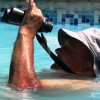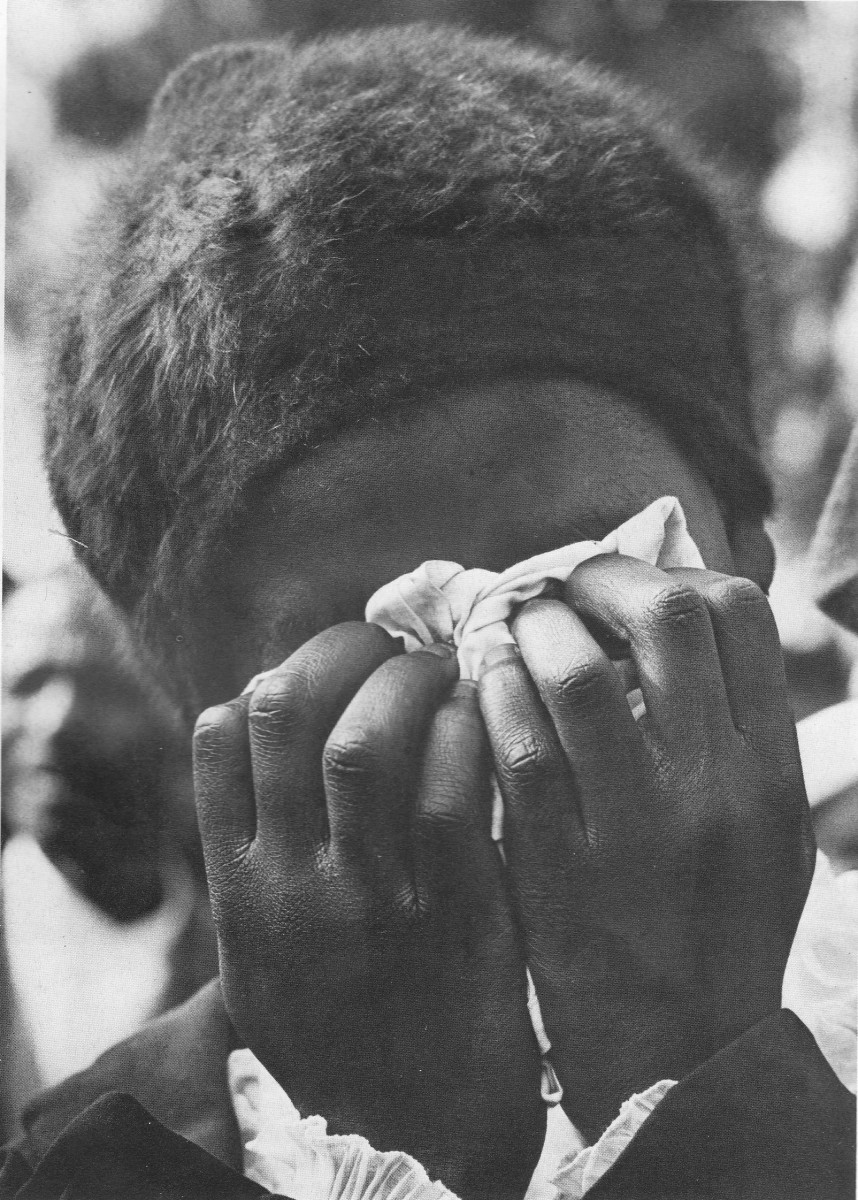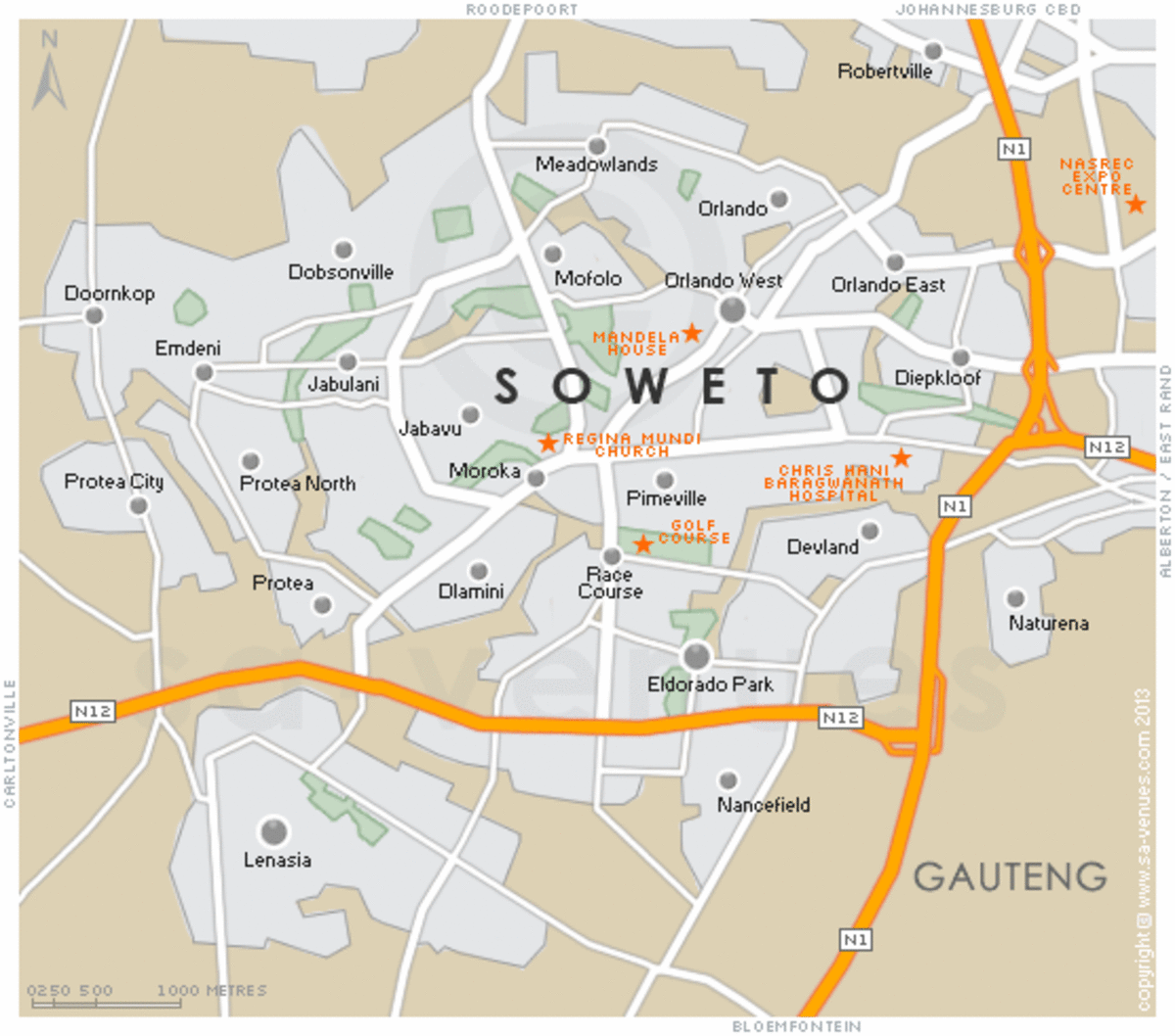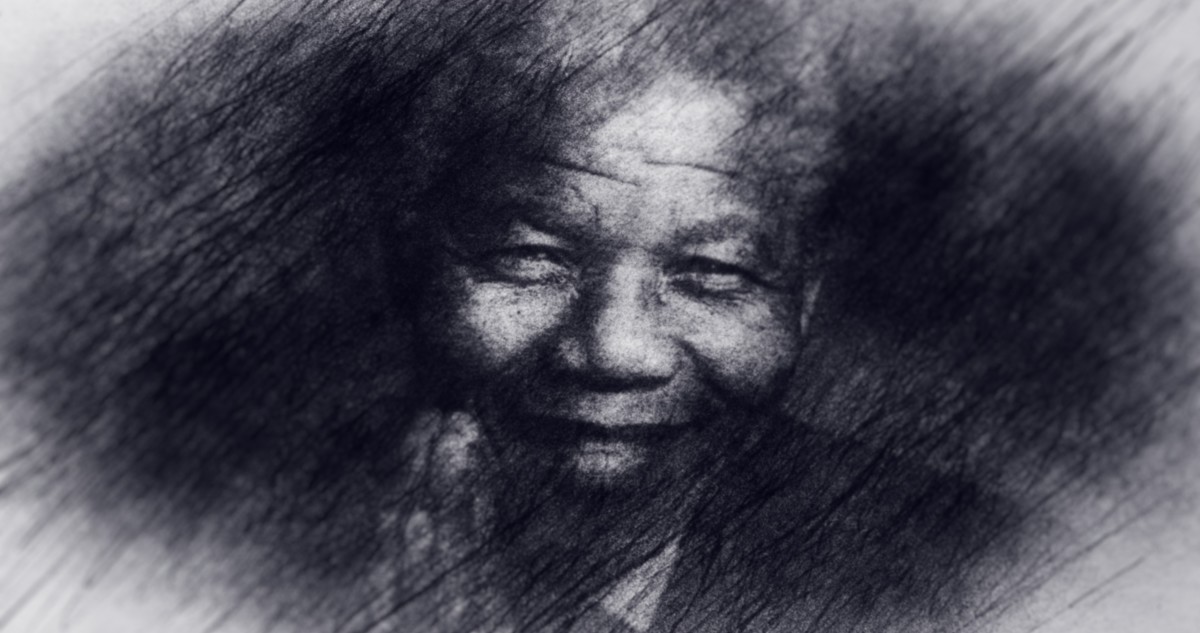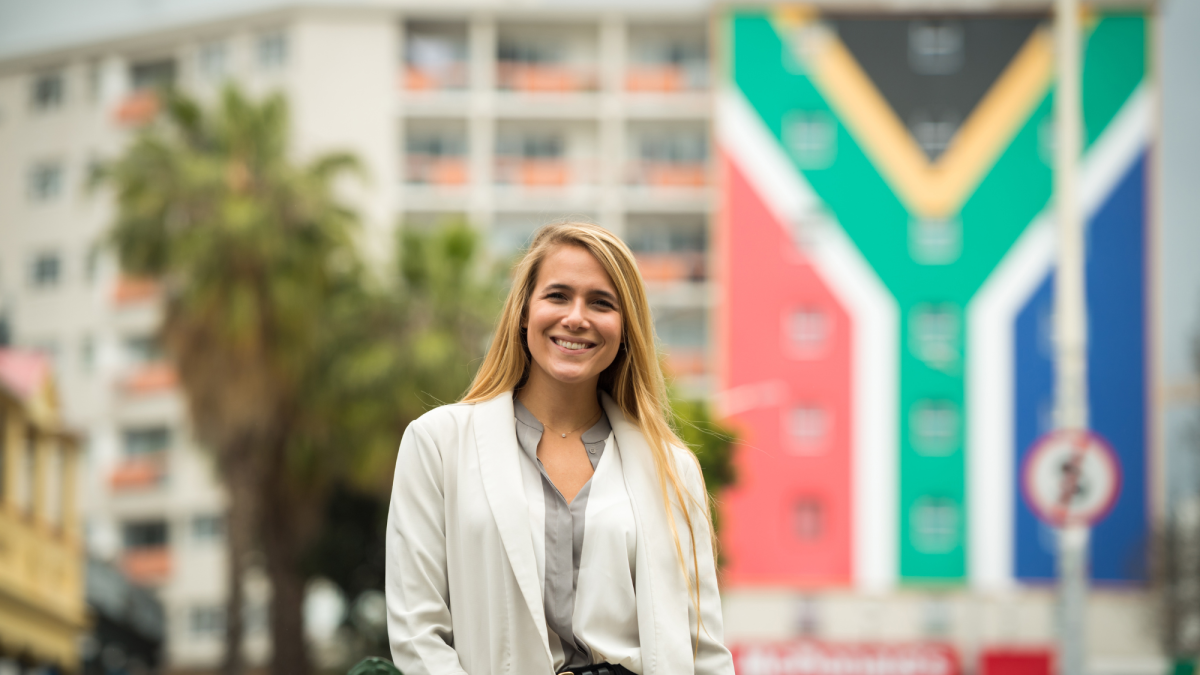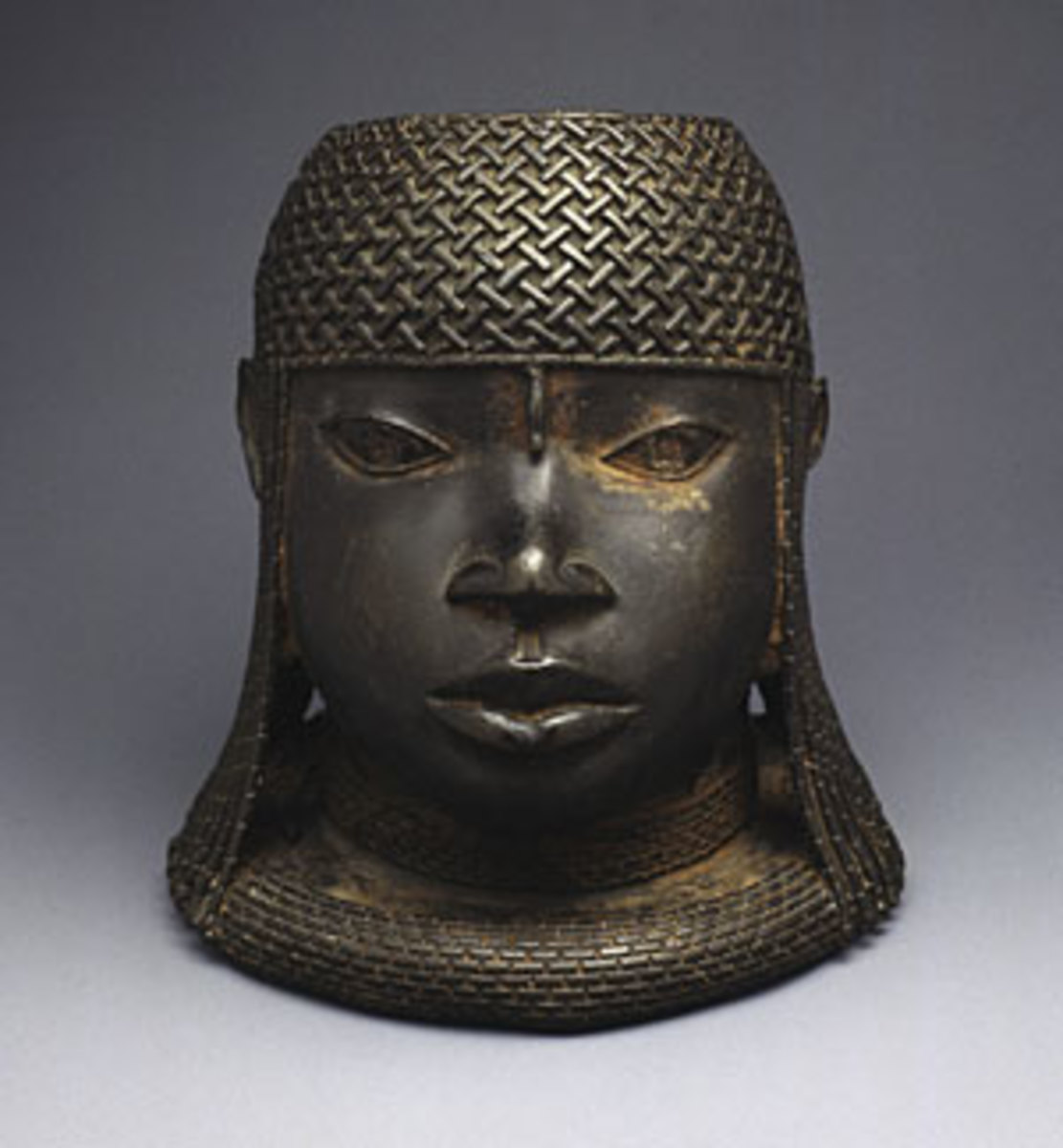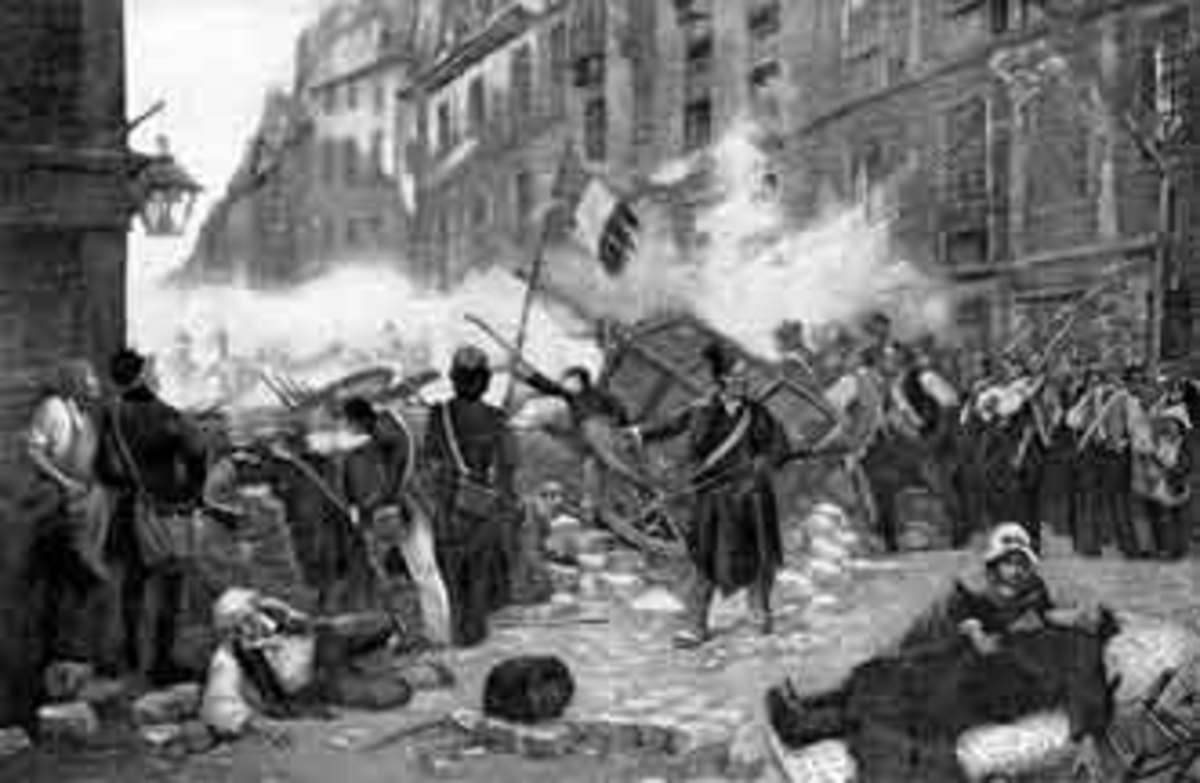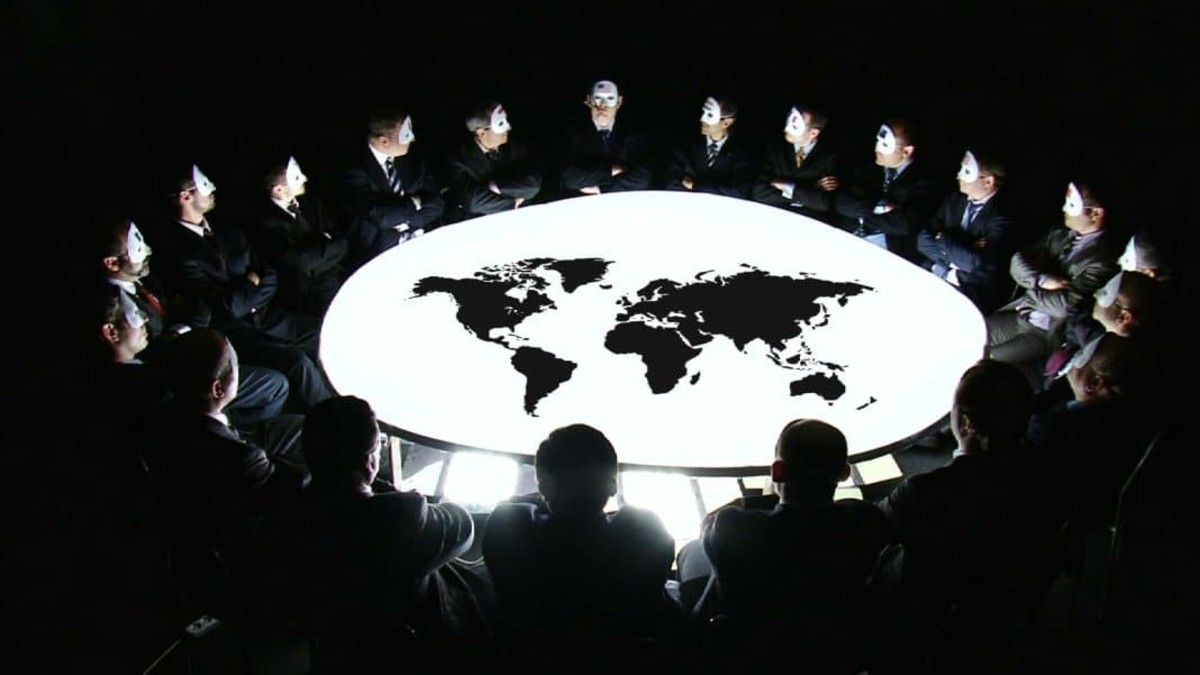South African History as Apartheid Ended
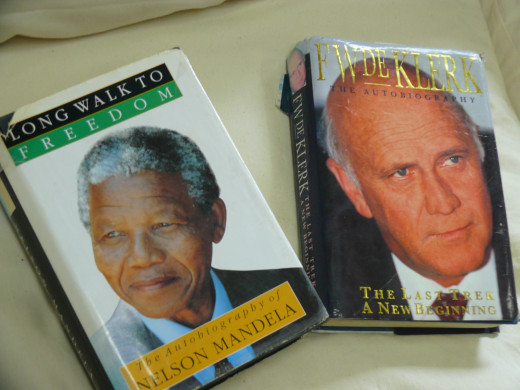
A Brief Look at Recent South African History as seen through the Eyes of Mandela and de Klerk
On the 10th of December 1993 Nelson Mandela and F.W. de Klerk received the Nobel Peace Prize in Oslo. It was awarded for the work they had done to bring about a new dispensation in the history of South Africa. This country has had a tumulus history of wars and fighting. At tribal, national and international level people fought to have the right to determine their own future. At times groups fought in order to oppose Colonial forces and at other times they fought for their very right to exist. Any history of South Africa catalogues these wars and a book like Frontiers by Noel Mostert is just one that is recommended.
Just recently I read the auto-biography of F.W. de Klerk (The Last Trek - A New Beginning) who in it, details the events that took place in the 1980’s and 1990’s from his point of view. Although I lived through this period in South Africa, reading the details of what took place was compelling. Once I started I could hardly put the book down. In particular de Klerk brings to the table his personal views of what happened during the negotiations that led to the ANC coming into power. This transition was something in which he had played a vital role. Preceding the first free election on the 26-29th April 1994, he had spearheaded the National Party as they worked to set up a parliament of national unity.
As a young man growing up in the Krugersdorp area of modern Gauteng, he came from a highly politicized and strong Christian National Party family. One of his uncles was Hans Strijdom who had been the Prime Minister of South Africa during the time young de Klerk was growing up. As a boy he often visited his uncle at Libertas, the official residence of the South African Prime Minister. In later years both de Klerk and Nelson Mandela were to reside there in the years when each, in turn, led the country.
South Africa, during the international boycotts and violence of the 70’s and 80’s, was desperately in need of change. The rule of the National Party since 1948 and the introduction of “Apartheid” as a policy, was destroying the country as opposition from the international community grew stronger and stronger. From outside the borders and within the country, the freedom fighters under the direction of Umkhonto We Sizwe, the military wing of the ANC, attempted to make the country ungovernable. Inside the country the Army and Police developed secret forces to combat this threat.
When F.W. de Klerk came into power as the new Prime Minister, taking over from the former uncompromising leader P.W. Botha, the time demanded a new look at solutions to these growing problems. At this stage negotiations had already taken place regarding the possible release of Nelson Mandela, and leaders in the political, sporting and business community were busy with meetings in neighbouring African Countries. One such movement was the Institute for a Democratic South Africa led by Van Zyl Slabbert. I had joined this movement and met with people from different races in East London, Port Elizabeth and Cape Town. One of the discussions held at the University of Cape Town Campus, was led by Cyril Ramaposa who is now the President of South Africa, he having taken over after the disastrous years that Jacob Zuma was in charge.
Offers were made to Nelson Mandela for his release from prison after 27 years on Robben Island, provided he rejected violence as a strategy, an offer he refused.
In his auto-biography, Long Walk to Freedom, Nelson Mandela gives us another side of the recent history of South Africa and how the negotiations with the National Party took place. Coming from a rural area in the Transkei, now part of the Eastern Cape, he, like F.W. de Klerk, became a lawyer. Mandela practised law in Soweto while De Klerk did the same in Vereeniging. Mandela however, became involved with the revolutionary movement and was arrested in 1962 by security police. After the famous Rivonia Trial, he and other ANC leaders were sent to prison on Robben Island, a small island off the coast of Cape Town.
Mandela was the son of a tribal leader who lost his position when he refused to cow-tow to the British magistrate who ruled in that area of the country, in the time preceding South Africa becoming a republic. As a young man he looked after the sheep and cattle in the rural are of Qunu and after school studied for his law degree at the University of Fort Hare in Alice, in the Easter Cape.
So in the 1980’s, as South Africa stood on the brink of civil war, just as had been the pattern in many African countries, fate brought together these two leaders from very different backgrounds, to enter into vital negotiations. Their self imposed mandate was to find a peaceful resolution when violence seemed the only alternative.
It is very interesting to read the accounts of these two Nobel Peace Prize winners as they described what took place. Both were under pressure from their constituencies with radical, moderate and liberal elements that all had to be kept happy to some degree. Added into the complicated mix, was the Zulu Nation under their leader Mangoshutu Buthelezi, who demanded to be granted an independent country like the South African neighbouring countries of Swaziland and Lesotho.
In their auto-biographies, both de Klerk and Mandela claimed to be ignorant of the human atrocities that their followers had been guilty of committing and which were only made public during the Truth and Reconciliation Commission which followed the elections. Both leaders publicly called for cessation of any violence during the negotiations, but seemed to have lost control over their followers. Many were killed in brutal ways in clashes between security forces, freedom fighters and Zulu/ANC conflict. Many white South Africans left the country during this time to look for greener pastures in other countries. Almost every white family in South Africa has friends or family living in the USA, Australia, New Zealand, Canada or European Countries.
The auto-biographies by Nelson Mandela and F.W. de Klerk were written in the last years of the previous century and one wonders what they would say now as they look back at what has happened during the past 27 years since the first free elections that included all the citizens of South Africa. Nelson Mandela spoke out before his death in 2013, about the problems and disappointments that had come with the ANC rule. FW de Klerk has also stated that the country that he had hoped for has not materialized.
Obviously the “freedom for all” that was essential for the country, brought great opportunities and hopes. But as the country limps forward at present with the collapse of state owned enterprises like the Railways, Post Office, S.A. Airways and ESCOM (the electricity supply agency), it is plagued by corruption, mismanagement and “state capture” by people from inside and outside the country. Many in new positions of power have used the new dispensation to enrich themselves instead of building a better country for all.
As we, who lived through this period of history, look forward to what this beautiful country holds for the next generation, we believe that other leaders will possibly come forward to lead the country in the way that it deserves. Nelson Mandela is quoted as saying: “Freedom can never be taken for granted. Each generation must safe guard it and extend it”. Perhaps as we move into the future, we will be able to achieve the peace and prosperity that all hoped for. Unfortunately at present, for many it remains only a distant dream.
Bibliography
De Klerk, FW The Autobiography. The Last Trek- A New Beginning. Macmillan. 1998
Mandela, Nelson The Autobiography. Long Walk to Freedom. Macdonald Purnell.1994
Mostert, Noel. Frontiers. The epic of South Africa’s Creation and the Tragedy of the Xhosa People. Jonathan Cape, London. 1992.
